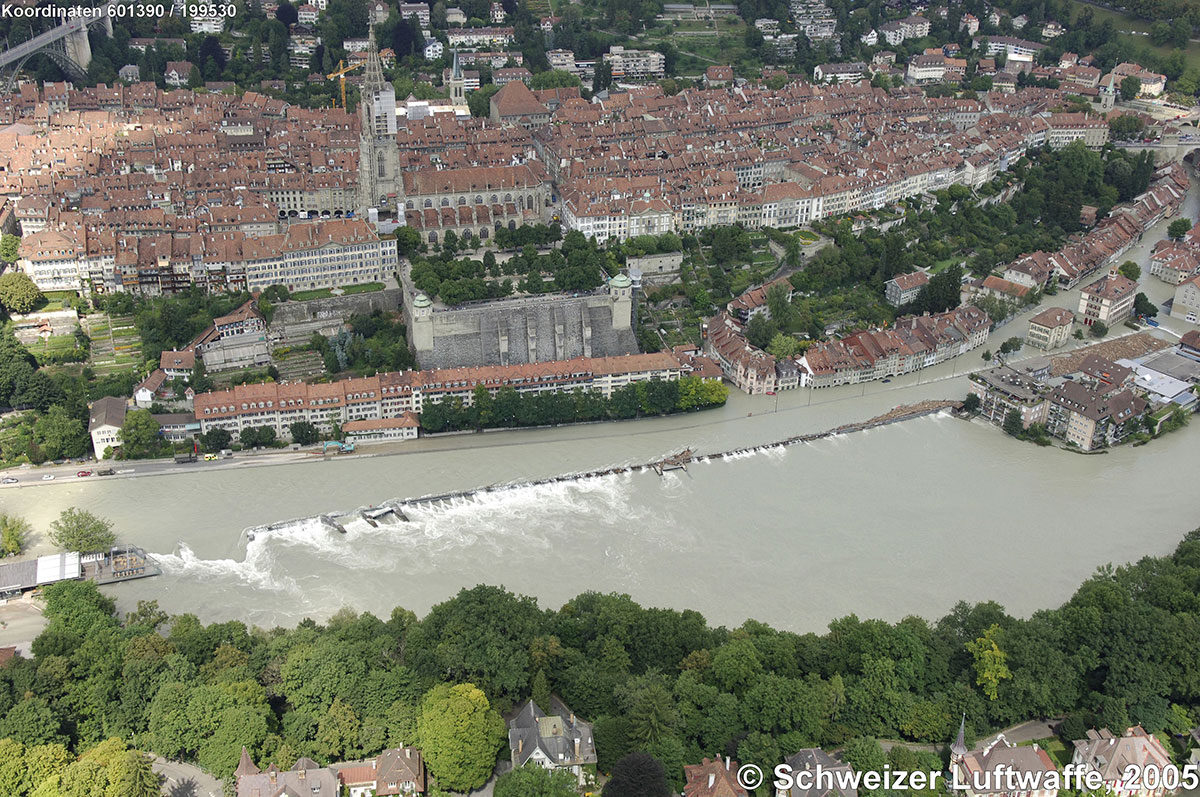When climate change is at the door
It is often suggested that we should emphasise the local effects of climate change in order to increase the willingness of the general populace to stand up for climate change mitigation. From a psychological point of view, however, it is clear that this is a significantly simplified concept of the effect. This is demonstrated in the work of the Bernese researcher Adrian Brügger whose work has just been published in the prestigious specialist journal "Nature Climate Change".
Many people perceive climate change to be something which is far removed in terms of time and space. Correspondingly, most people have a deep willingness to support political measures for climate change mitigation or to live an environmentally friendly lifestyle. It is often suggested that, in order to increase the personal involvement and the motivation to do something about climate change, we should demonstrate its effects on the local populace and natural environment. However, various lines of research from psychology suggest that the demonstration of the local effects of climate change for individuals can trigger wide variety of processes. Some of these processes increase people's willingness to stand up for climate change mitigation. However, the communication of the negative local consequences of climate change may not have any effect and, under certain circumstances, even lead to people who hear or read about the consequences of climate change to start avoiding this topic (and consequently not to take any measures for climate change mitigation).
Not everyone cares about what is local
For people who are personally affected by the local effects of climate change or who worry about things and people threatened by them, highlighting these local effects can increase the motivation to protect them. For example, a mountain climber is very likely to react with concern to a radio broadcast describing the shrinkage of glaciers in the Swiss Alps. Anyone who has family in the region may be inclined to worry about their welfare in view of the negative consequences, but not everyone attaches importance to glaciers. There are also people who have travelled a lot and care about social relationships in many regions of the world. These people are likely to feel that an exclusively locally targeted demonstration of climate change does not speak to them as much as a more global picture. Emphasizing the local effects of climate change therefore depends on the interests of the individual. Only those for whom the local area is close to their hearts are likely to react with concern and be motivated to do something against climate change.

When climate change becomes threatening
Paradoxically, concern and worry about the possible consequences of climate change can undermine the motivation to get involved with climate change mitigation. When threatening scenarios are personally relevant, it can happen that people are overwhelmed by negative feelings such as worry. This can prevent people from doing anything to mitigate the threatening situation. Studies from the health sector thus suggest that strongly negative feelings increase the tendency to do things the only purpose of which is to get rid of the unpleasant feelings. In relation to climate change, this can mean that, if worries are too great, people avoid media reports and discussions about climate change, play down the consequences for their own lives, play down climate change itself or put the responsibility into the hands of third parties. In summary, concern – triggered by proximity or other communication strategies – is no guarantee of increased motivation for climate change mitigation.
Proximity influences the basis for decision-making
Depending on whether a thing that someone is thinking about is close by or far away, the information that they use when making decisions also changes. Someone thinking about the local effects of climate change is more likely to support their decision for or against climate change mitigation measures with concrete information from the current situation. This may be feelings that they already have, the opinion of the person who they have already spoken to or how difficult and strenuous they consider the measures in question to be.
Someone who is thinking about the effects of climate change which are more distant in space or time will make their decision with more detachment from the current situation and is more likely to support it with abstract and longer-term consideration. People weigh up, for example, how well or badly the expected effect of the measures is suited to their own goals and values.
According to this research tradition (Construal Level Theory), you thus cannot expect that the presentation of the consequences of climate change as either near or far will have a direct effect on the motivation to do something against climate change. We can rather assume that presentation as near or far will direct the attention to different information. What perception and decision the individual person reaches depends on what information and thoughts are at the forefront of their mind, so for example which feelings arise when they think about the local consequences of climate changes and what goals they are personally pursuing when they think about the more distant consequences of climate change.

More complex than you think
In conclusion, it can be said that the intuitively plausible idea of focusing communication on the local consequences of climate change can trigger a variety of psychological processes and does not necessarily increase willingness to do something about climate change. Researchers and communications experts who draw attention to climate change locally and want to thus achieve a specific goal should be aware of the complex effects of this strategy and should take into account the fact that success depends on a variety of factors such as the recipient's personal values. Taking the complexity of this approach into account should create realistic expectations with regard to its effectiveness and should contribute to avoiding disappointments about unsuccessful research projects and ineffectual campaigns.
About Adrian Brügger

Dr. Adrian Brügger studied psychology and environmental sciences at the University of Freiburg i. Üe. and in Zurich. He then went on to do a doctorate in psychology at the University of Exeter. He has worked in the Consumer Behaviour department at the University of Bern since 2011. He is currently working at the University of Cardiff as a guest researcher as part of a mobility fellowship from the Swiss National Science Foundation. In his research, he is interested in the interdependency between man and nature and, in particular, what motivates people to stand up for sustainability and protection of the environment.
Contact:
Dr. Adrian Brügger, Institut für Marketing und Unternehmensführung, Consumer Behavior, Tel.: +41 31 631 80 41, adrian.bruegger@imu.unibe.ch